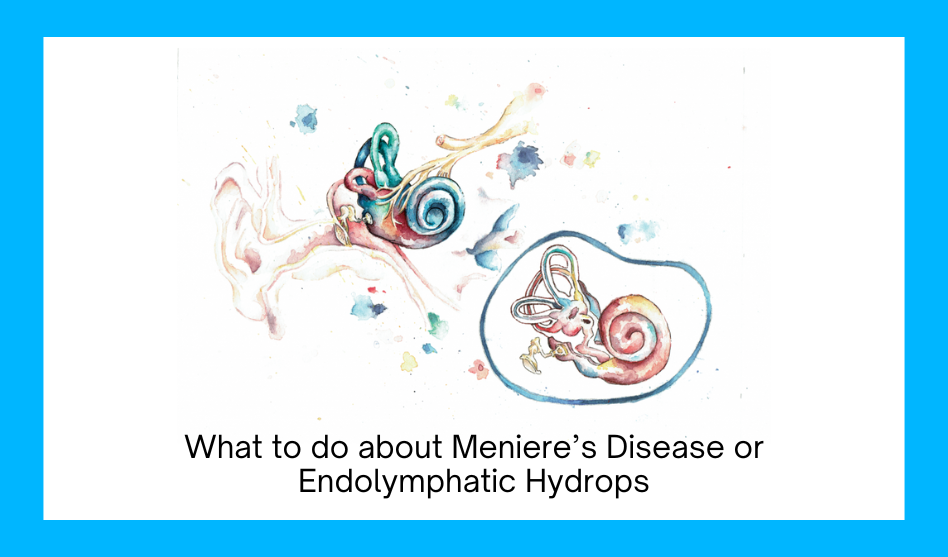Meniere’s Disease or Endolymphatic Hydrops
Listen (7 minutes)
Key points: Episodic vertigo, spinning for longer than 20 minutes, fluctuating hearing loss/ tinnitus/ aural (ear) fullness, usually only one ear is affected, genetic factors, medical investigation recommended.
What is it?
Meniere’s disease is thought to be a combination of environmental and genetic factors. It is not something that we can predict, prevent or control- but we can support healthy recovery and prevent ongoing stressors. Meniere’s episodes may result in permanent damage to the inner ear structures resulting in balance symptoms and permanent hearing loss in that affected ear.
The situation:
For Meniere’s patients, the inner ear makes too much special inner-ear-fluid (known as endolymph). In fact, it can make so much fluid that the inner ear no longer has enough space to store it. Part of the inner ear membranes may then rupture causing a mix of inner ear fluids. The mix of fluids can damage the balance and the hearing organs. Typically people experience a low-pitch hear loss in that ear or they hear a low-pitch roaring sound (known as tinnitus).
The body and brain then need to rebuild membranes and balance/ hearing pathways during the recovery process. This can be a very tender and sensitive time.
Patients may report feeling sensitive to both sound and movement. It can be a confusing and exhausting process over months, or it may recover in just a few hours or days. This depends on the attack and differs from person to person.
The amount of fluid produced, stored, and used by the inner ear is not accurately controlled by medicine. Meniere’s attacks can be very unpredictable. Each person has a different experience of vertigo/hearing loss and the uncertainty of symptoms can feel quite debilitating. Having tools and strategies for strengthening steadiness, building self-confidence and cultivating resilience are highly recommended. The recovery process includes physical, mental, emotional and ‘spiritual’ aspects. You will need to explore the many layers of your wellbeing to help reduce triggers and heal your damaged inner ear pathways. This process is called neuroplasticity- your body and brains ability to change itself.
Don’t believe the ‘Meniere’s horror stories’! There is a lot you do to help re-set your balance system and return to daily activities without fear of symptoms. Talk to an audiologist and get an annual hearing test if you have hearing loss. You may not need hearing aids however it is recommended that you learn about what solutions are available to you, to ease your concerns. Balance symptoms are manageable with a customised daily home program to keep your residual balance function strong and healthy.
The ROCK STEADY support program will show you how to create customised home exercises and is recommended for an effective recovery.
Ongoing stressors and persistent worry can exacerbate vertigo, delaying recovery. Our body can recover its balance function following a Meniere’s attack – stay supported and learn how to understand what you body is going through.
Listen to our recovery case studies here. If you need more support, book an initial consultation.

